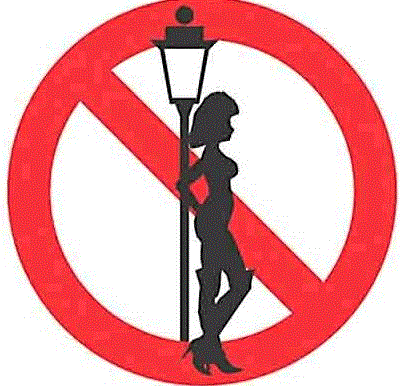
The business of prostitution is one that has existed for centuries all over the world, Nigeria not being an exception. A research conducted by the National Centre for Biotechnology Information (NCBI) of the United States reveals that there is an estimated 46,691 thousand sex workers in Lagos (Nigeria’s largest city) alone. In most countries, the business of prostitution is illegal and punishable under their respective laws. For instance, Section 225A of the Criminal Code Act of Nigeria and Section 183 of the Penal Code of Northern Nigeria make prostitution a punishable offence.
However, the criminalisation of prostitution in Nigeria and by extension in the world seems not to have deterred the activities of commercial sex workers. Being their purported sole source of livelihood, most commercial sex workers have continued to “put their bodies up for sale”. It is against this backdrop that Sweden has decided to take a rather clever approach towards the issue of prostitution.
Following several unsuccessful anti-prostitution laws, the Swedes enacted an interesting law which decriminalizes prostitution. At first glance, it would seem as if the law makes prostitution legal, but that is not the case. The effect of the law is that it makes the offer of sexual services legal, i.e., commercial sex workers are free to stand at their various posts, wait at their brothels or solicit for clients. However, the law prohibits, with threat of punishment or imprisonment, the act of purchasing or paying for sexual services. In simple terms “you can sell but you cannot buy”. Clearly, if nobody is buying or paying for sexual services, the sellers will be forced to look for alternative sources of livelihood more acceptable by law and the society.
Granted, the Swedish law referred above is indeed ingenious and ought to be considered for adoption by other countries. However, several issues arise on the enforcement of this law. For instance, how does one determine that a person furnished consideration for the services rendered by the sex worker? How does the enforcement agency (if any) determine the money “given” to the sex worker was a consideration for sexual services? Take for example a person charged for paying for sexual services, such person could easily claim the money was simply a transport fare, or a gift, and not a consideration for sexual service. The foregoing, and many others are issues that may arise in the enforcement of this law.
The above in view, our reader will agree that it may be advisable to maintain the existing Nigerian law prohibiting both the sale, and purchase of sexual services as provided under Section 225A of the Criminal Code Act of Nigeria and Section 183 of the Penal Code of Northern Nigeria. That notwithstanding, there remains the core of enforcement of Nigeria’s anti-prostitution laws, as with many other laws in Nigeria. Most people resident in Lagos state will confirm that there are various neighbourhoods filled with commercial sex workers and little or nothing is being done to put an end to such acts.
On the other hand, Nigeria may also consider taking a more positive approach towards prostitution by creating alternative jobs and establishing rehabilitation centres so that instead of simply punishing the prostitutes, they would be sent to rehabilitation where they would develop entrepreneurial and vocational skills. This the writer believes will encourage them to quit prostitution and generally contribute to the wellbeing of the society.
About the Author: Joel Joshua is a Junior Associate at Perchstone & Graeys, a leading commercial law firm in Nigeria, with especial competence in Energy & Infrastructure, Banking & Finance, Dispute Resolution and Corporate & Commercial Law.
Photo Credit: Sulaiman’s work- my dream mausoleum – blogge
Wow great work bro.